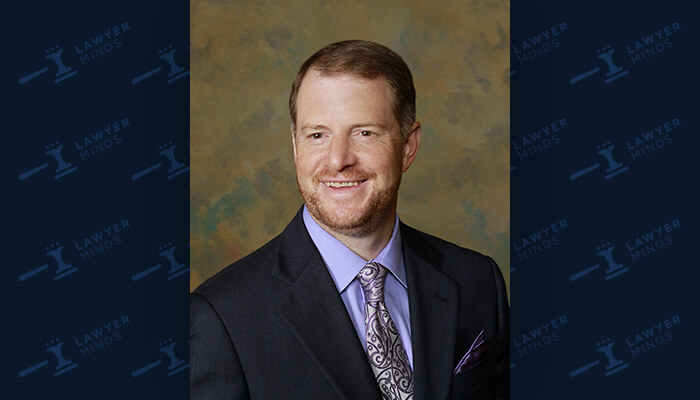Interview with Greg Stapp

Greg Stapp is the founder of Stapp Law, LLC in Williamsport, Pennsylvania. A graduate of the Dickinson School of Law, Greg has dedicated his practice to representing injury victims at the workplace and in his community. Having tried over 500 workers’ compensation cases, Greg’s experience handling cases ranging from the minor to the very complex gives him valuable insight into how a lawyer can truly dedicate his practice to helping others.
Lawyer Minds: Why did you decide to become a trial lawyer?
Greg: My degree in college was in History with a minor in Philosophy, so it was either teach, like my mother, or go to law school. I chose the latter. When I began law school, I was immediately drawn to criminal law. However, as I began my practice I quickly learned that civil trials and injury law was where you could make more money while still doing trial work. So, I began practicing criminal law and workers’ compensation law. Once I moved to Williamsport, I had to decide what I wanted to specialize in here and I slowly phased out of criminal work and began doing personal injury civil trial work with the workers’ compensation.
Lawyer Minds: What kind of cases does your firm handle?
Greg: We handle mostly personal injury and workers’ compensation cases. The personal injury cases range from slip and fall and automobile accidents to medical malpractice. We also handle employment issues and discrimination.
Lawyer Minds: How did you end up handling those types of cases?
Greg: I made a conscious choice early in my career to get away from criminal work and to focus on civil personal injury and workers’ compensation cases for several reasons.
Lawyer Minds: What is the most rewarding experience you’ve had as a lawyer?
Greg: I think the most rewarding experience for me as an attorney is helping people. I frequently tell my personal injury clients that I am not Superman.
I can’t fly around the world backwards and make what happened to you never happen. The best I can do is to get you money. Which is a horrible substitute for being healthy or having your child or spouse back, but it’s the best I can do.
I also think that we provide closure for people in many cases. It helps people to feel like they got some type of justice.
My most rewarding experience to date would be the mother of a girl who was killed in a tragic carbon monoxide poisoning at a friend’s house. When we completed the case after years of hard fought litigation, she wrote me a card that said that I treated her like family (which is my goal), and gave me a stone with a cross on it that sat on her daughter’s dresser. As I write this, that stone sits in my office. Where it will remain until I retire.
Lawyer Minds: What do you wish you would have known about your career before becoming a lawyer?
Greg: I think after 25 years of doing this, that it is important for people who want to practice law in civil trial work to like people. If you are not genuinely interested in helping people, most areas of the law are not going to be for you.
Lawyer Minds: What are some things you look for when first meeting with a client?
Greg: I am looking for them to be honest with me. If I cannot trust that a client is being honest with me, then it will make my representation and getting them what they want difficult. We have to be able to trust each other in the attorney-client relationship.
Lawyer Minds: What advice do you have for someone who wants to start a law firm?
Greg: You will need working capital.
You will also need somewhat of a reputation in the community where you want to practice. Otherwise, it will be hard to get in new clients and make a living doing it, at least initially. Ideally, you want to have some working capital and some great cases to take with you into your new practice.
Lawyer Minds: How much time do you spend working on your practice versus in the practice (practicing law) and how do you balance that out?
Greg: It is hard to say as it varies from week to week. I would say at least 10 to 20% of my time is spent in managing the practice. But, on weeks where a copier breaks or you are billed incorrectly by a vendor, you can easily lose hours of your time and spend much more than 20% of your time that week bogged down in administrative issues.
Thanks again to Greg for taking the time to do this interview with us!

